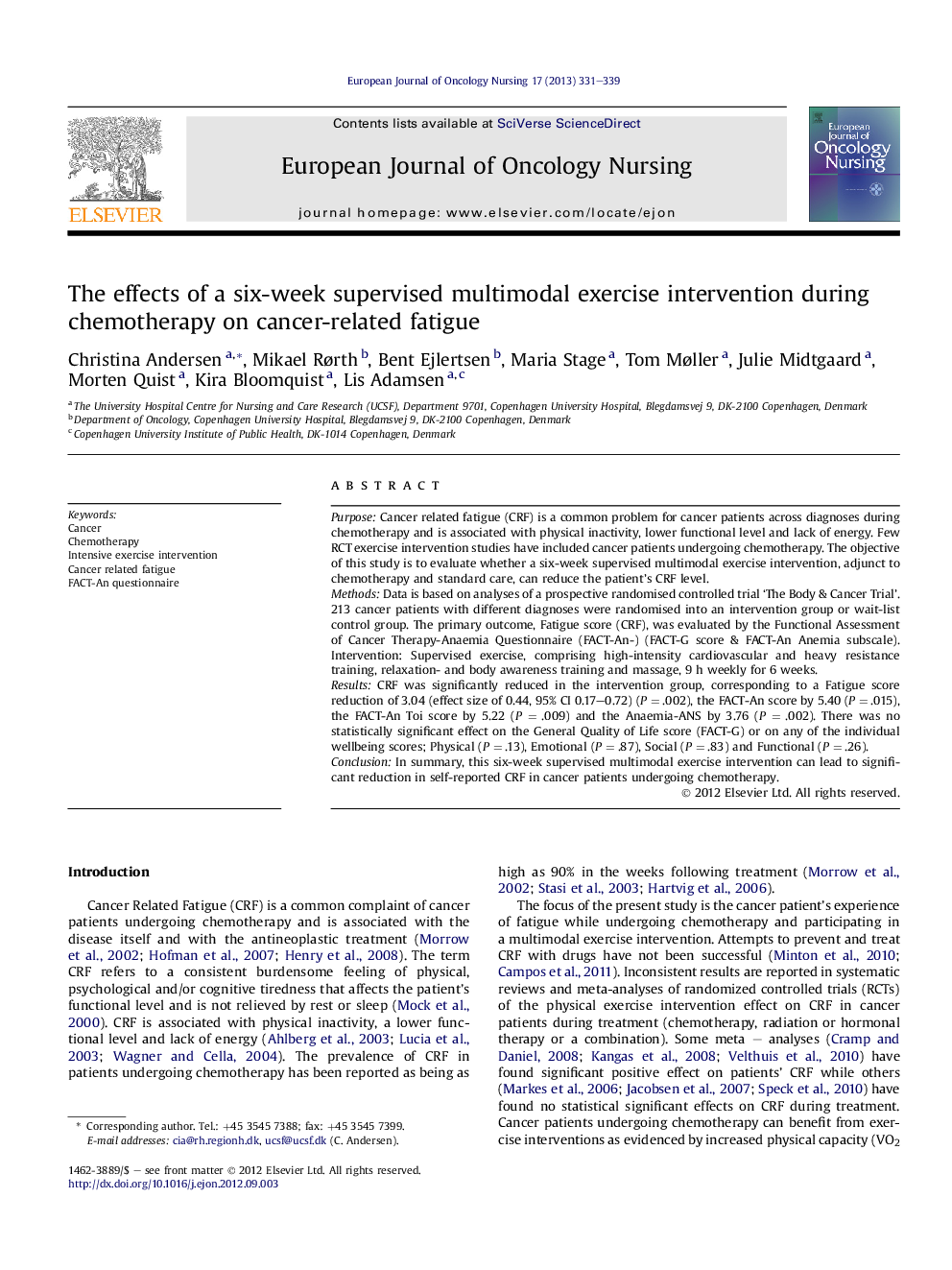| Article ID | Journal | Published Year | Pages | File Type |
|---|---|---|---|---|
| 2647739 | European Journal of Oncology Nursing | 2013 | 9 Pages |
PurposeCancer related fatigue (CRF) is a common problem for cancer patients across diagnoses during chemotherapy and is associated with physical inactivity, lower functional level and lack of energy. Few RCT exercise intervention studies have included cancer patients undergoing chemotherapy. The objective of this study is to evaluate whether a six-week supervised multimodal exercise intervention, adjunct to chemotherapy and standard care, can reduce the patient's CRF level.MethodsData is based on analyses of a prospective randomised controlled trial ‘The Body & Cancer Trial’. 213 cancer patients with different diagnoses were randomised into an intervention group or wait-list control group. The primary outcome, Fatigue score (CRF), was evaluated by the Functional Assessment of Cancer Therapy-Anaemia Questionnaire (FACT-An-) (FACT-G score & FACT-An Anemia subscale). Intervention: Supervised exercise, comprising high-intensity cardiovascular and heavy resistance training, relaxation- and body awareness training and massage, 9 h weekly for 6 weeks.ResultsCRF was significantly reduced in the intervention group, corresponding to a Fatigue score reduction of 3.04 (effect size of 0.44, 95% CI 0.17–0.72) (P = .002), the FACT-An score by 5.40 (P = .015), the FACT-An Toi score by 5.22 (P = .009) and the Anaemia-ANS by 3.76 (P = .002). There was no statistically significant effect on the General Quality of Life score (FACT-G) or on any of the individual wellbeing scores; Physical (P = .13), Emotional (P = .87), Social (P = .83) and Functional (P = .26).ConclusionIn summary, this six-week supervised multimodal exercise intervention can lead to significant reduction in self-reported CRF in cancer patients undergoing chemotherapy.
